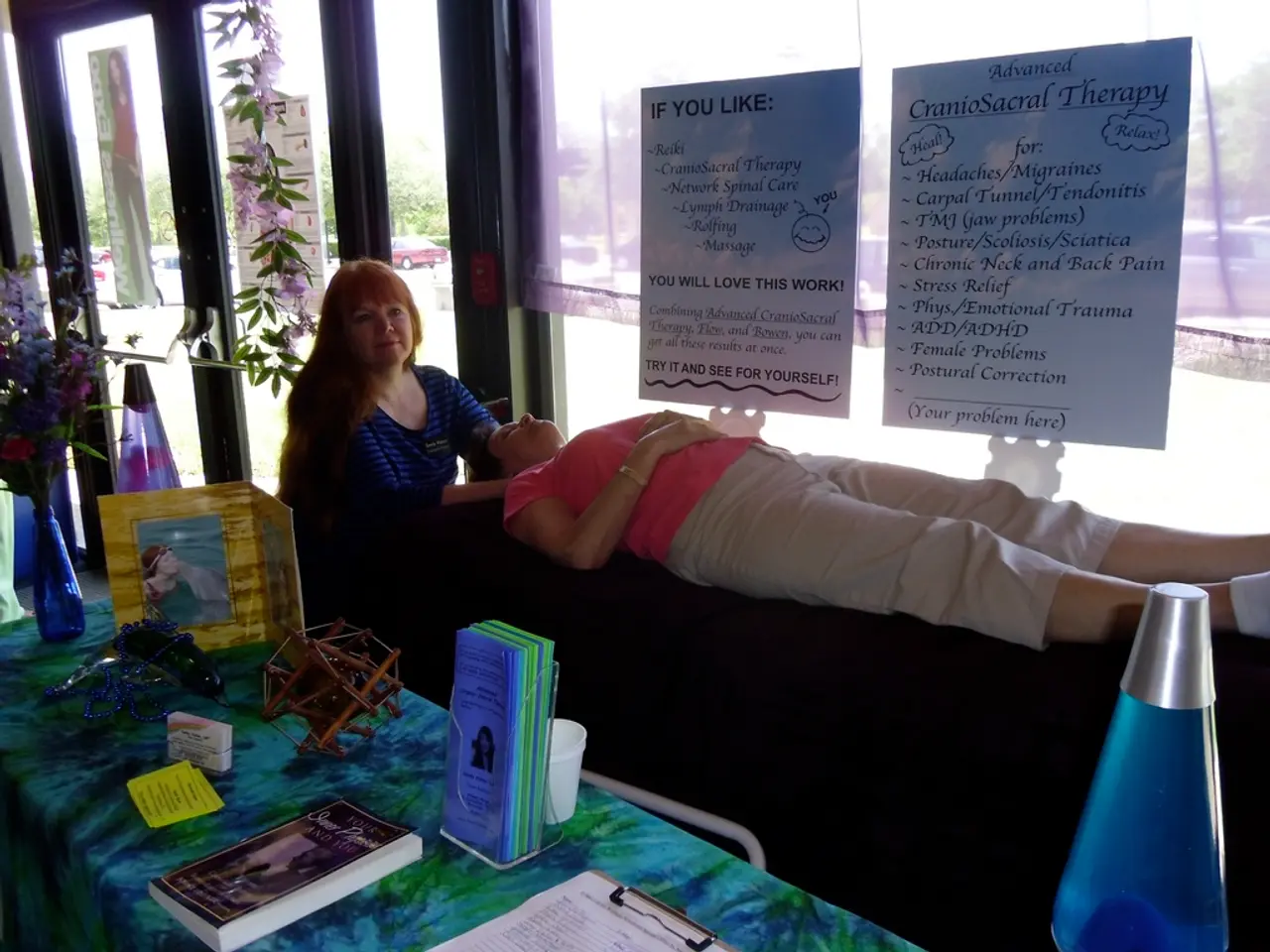Persistent Agony and Melancholy: An Overview
In a bid to tackle the intricate interplay between chronic pain and depression, healthcare professionals are increasingly adopting holistic, multidisciplinary approaches. This approach is crucial in managing both the physical symptoms of chronic pain and the psychological aspects of depression.
Chronic pain, a persistent discomfort that lasts for several months, can be caused by long-term conditions such as fibromyalgia, diabetes, irritable bowel syndrome, arthritis, or back pain. Symptoms include stiffness, discomfort, soreness, muscle spasms, and skin temperature changes [1].
The American Psychiatric Association (APA) states that those living with chronic pain have a heightened risk of developing mental health issues such as depression [2]. In fact, more than 67% of those who have received a diagnosis of chronic pain also have a psychiatric disorder [1]. This creates a vicious cycle, where pain worsens depression, and depression intensifies the perception and impact of pain [2][4].
This interplay influences treatment approaches in several key ways. Integrated treatment is essential, treating only the physical pain without addressing depression usually leads to poorer outcomes, as depression can reduce motivation and make pain harder to manage [1][4]. Similarly, depression treatments may be less effective if pain is not adequately controlled [5].
Psychological factors mediate this relationship. Insomnia, psychological inflexibility (difficulty adapting to distressing thoughts/feelings), and resilience significantly affect how pain severity translates into depression severity. Addressing these factors via cognitive-behavioral therapy, acceptance and commitment therapy, and resilience-building can improve outcomes [2].
Mind-body approaches and psychotherapy can help reset brain-body communication and break the pain-depression cycle, improving both mood and pain symptoms [1]. Alternative treatments for long-term pain include acupuncture, biofeedback, and spinal cord stimulation [1].
In chronic pain patients (including seniors), depression and anxiety are highly prevalent and exacerbate pain experiences, reduce quality of life, and increase social isolation and functional decline. This calls for holistic care models that simultaneously target mental health and pain management [3].
Novel therapies like TMS (Transcranial Magnetic Stimulation) offer additional options for patients with refractory depression and chronic pain, as they can improve mood without interfering with medications or worsening physical symptoms [4].
In specific conditions like endometriosis with chronic pain, depression treatment may have limited effectiveness without concurrent pain management, emphasizing the need to simultaneously address both [5].
It's important to note that mental health conditions may trigger physical pain sometimes, and people with depression may have a higher chance of developing chronic pain. Chronic pain can have a negative impact on an individual's quality of life, causing symptoms of depression, feelings of helplessness, and difficulty concentrating or performing everyday tasks.
When chronic pain and depression occur together, they can be challenging to treat, often requiring a person to see both a psychiatrist and pain specialist. In managing this complex relationship, it's essential to remember that addressing both physical symptoms and psychological health is key to optimizing recovery and quality of life.
References:
[1] Fields, H. L. (2018). The Neurobiology of Chronic Pain: Molecules, Brain Circuits, and Behaviour. Nature Reviews Neuroscience, 19(10), 625-641.
[2] Turk, D. C., & Rudy, T. (2011). Mind Over Pain: Scientifically Proven Techniques for Managing Chronic Pain. New Harbinger Publications.
[3] Goldenberg, D. L. (2017). Pain and depression in older adults: An update on the complex relationship. Journal of Pain Research, 10, 1865-1874.
[4] Mayo Clinic Staff. (2021, March 30). Depression and chronic pain: What's the connection? Mayo Clinic. https://www.mayoclinic.org/diseases-conditions/chronic-pain/in-depth/depression/art-20047877
[5] Moyer, C. (2017, October 10). Endometriosis and Depression: What's the Connection? Healthline. https://www.healthline.com/health/endometriosis/depression-connection
- Chronic pain, often linked to conditions like fibromyalgia, diabetes, or arthritis, can lead to mental health issues such as depression, according to the American Psychiatric Association.
- Given the intricate link between chronic pain and depression, healthcare professionals advocate for holistic, multidisciplinary approaches, addressing both physical symptoms and psychological aspects of these chronic diseases for optimal recovery and improved quality of life.
- In managing both chronic pain and associated mental health conditions like depression, integrating treatments such as cognitive-behavioral therapy, resilience-building, and alternative methods like acupuncture may help break the pain-depression cycle.




